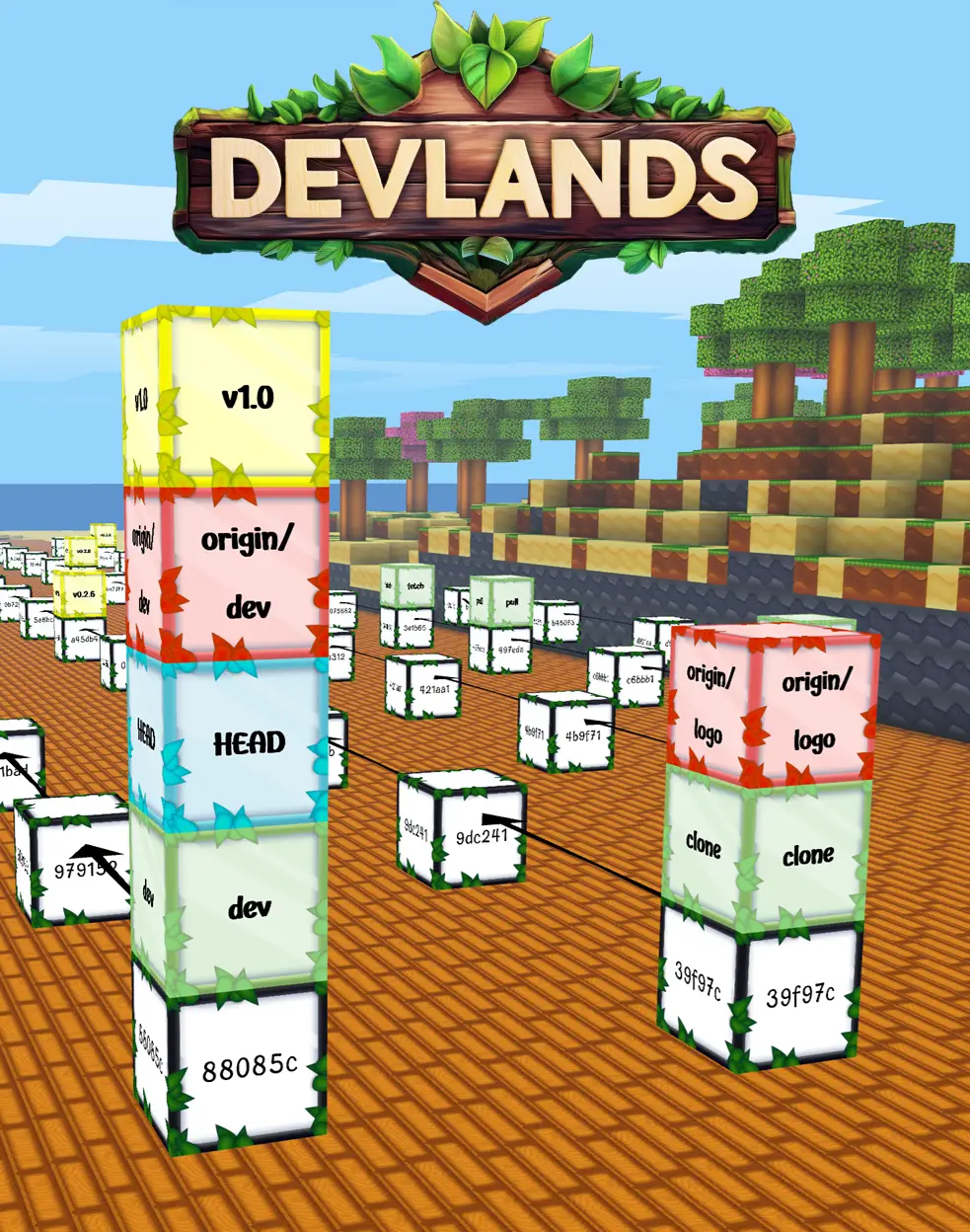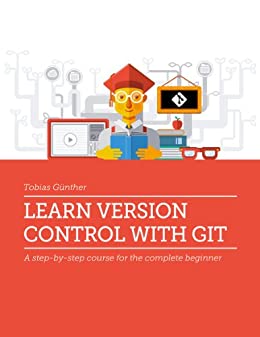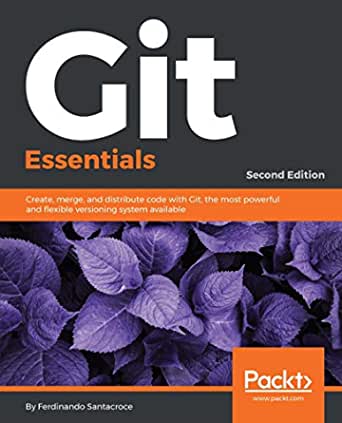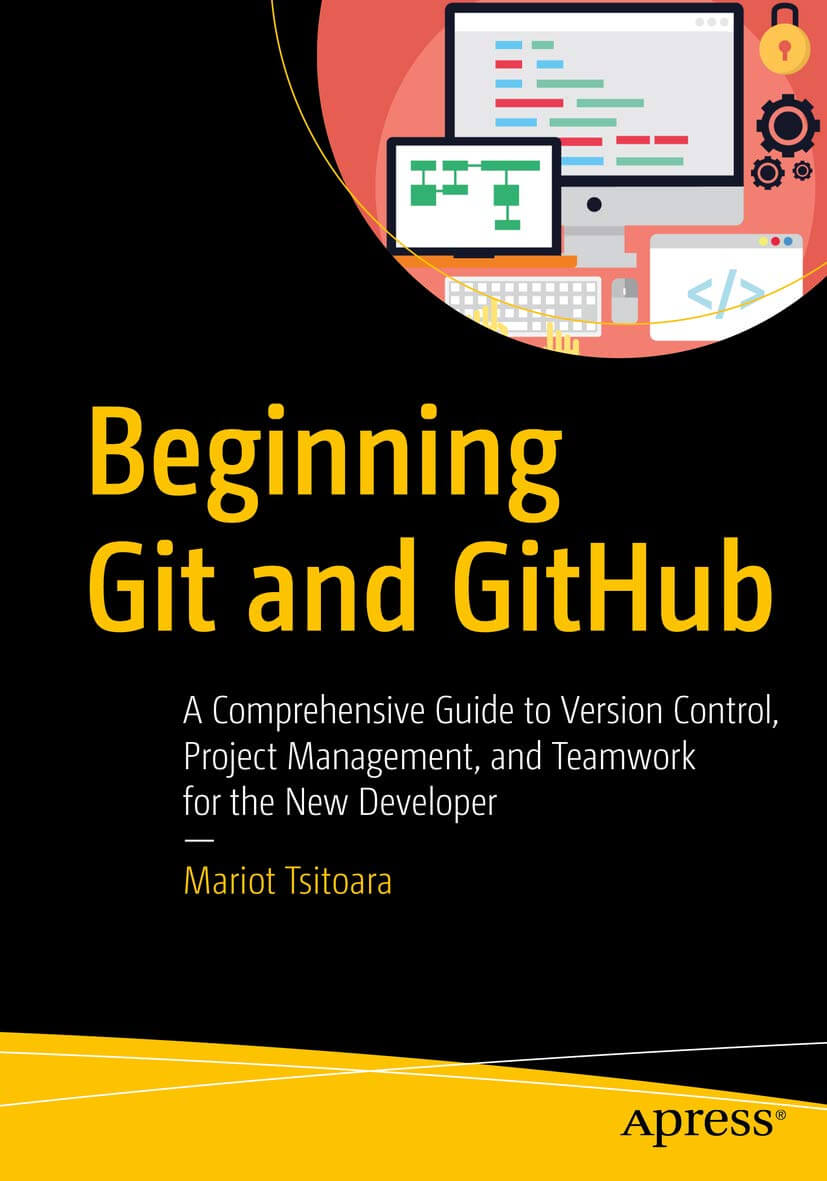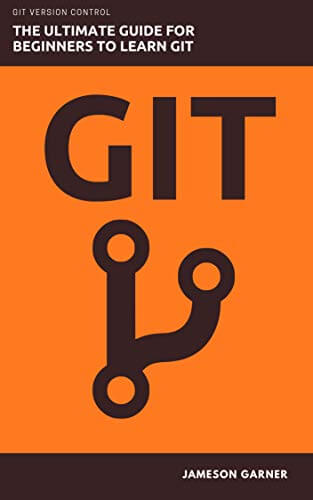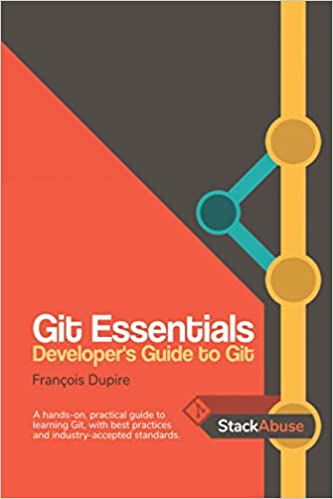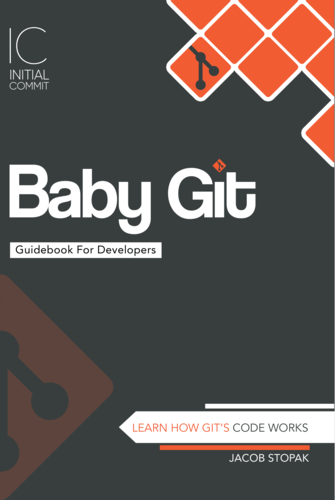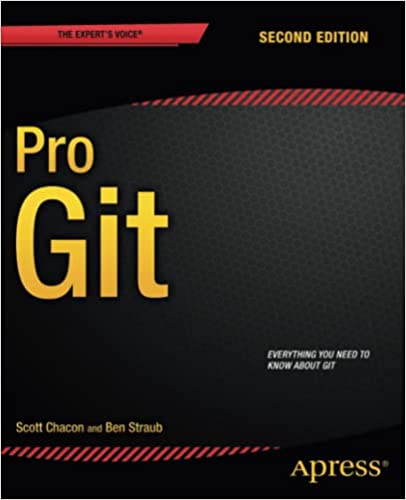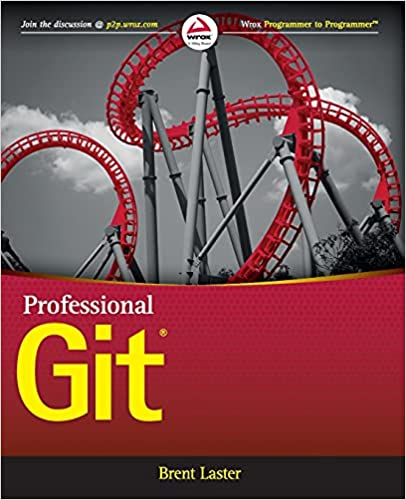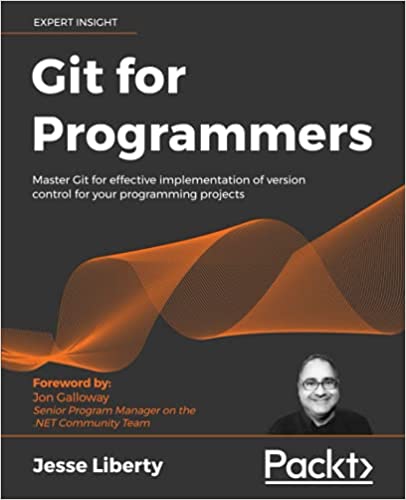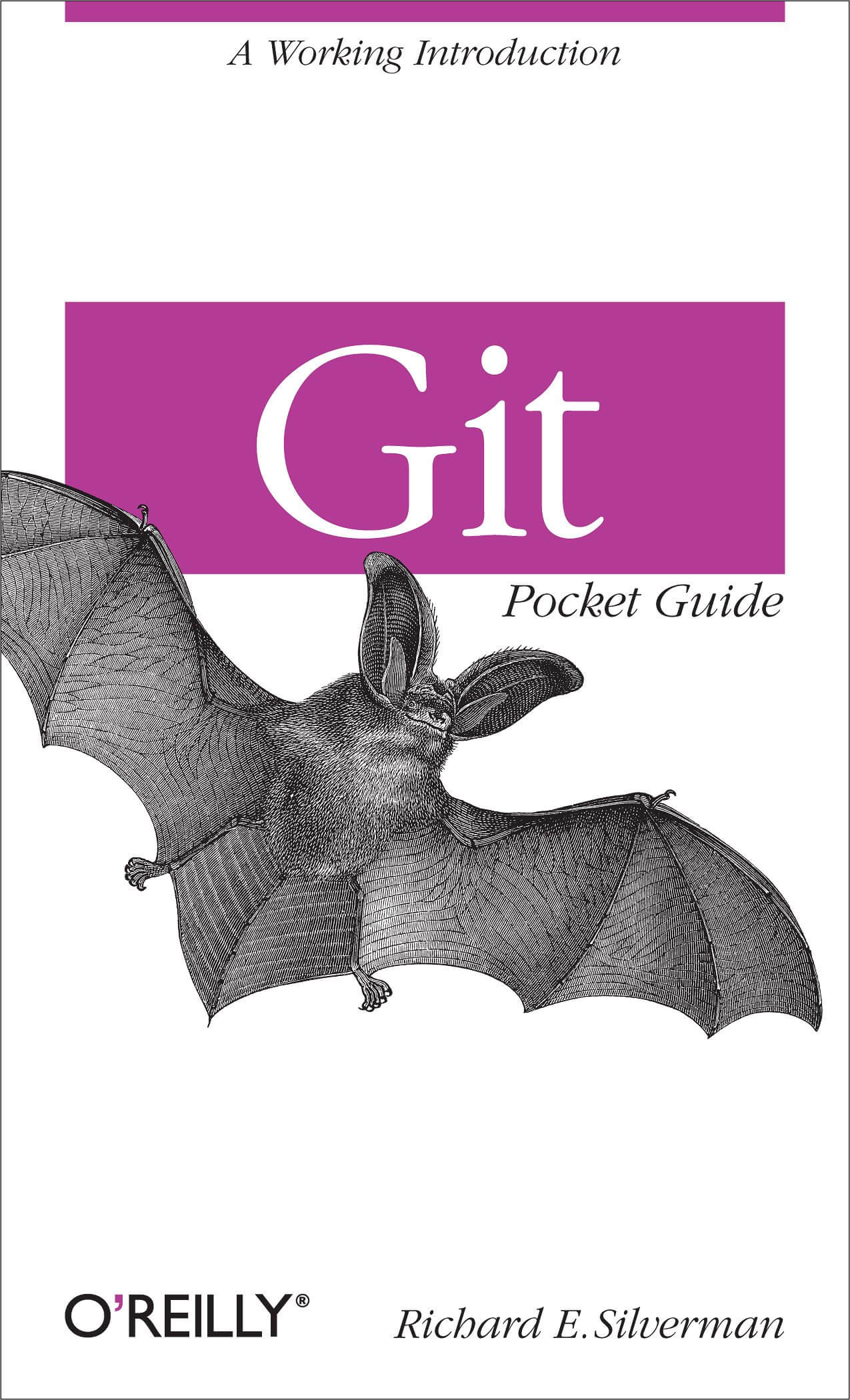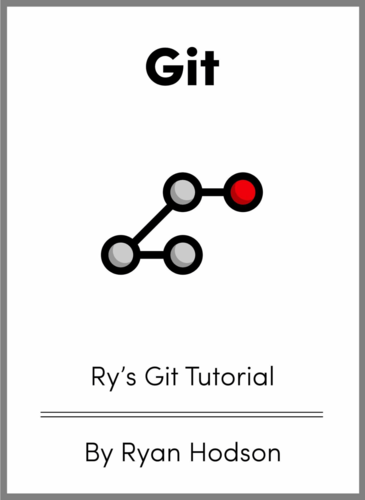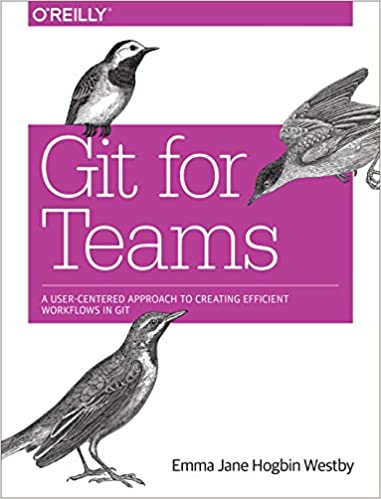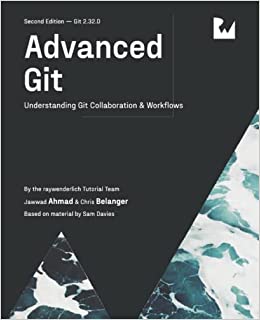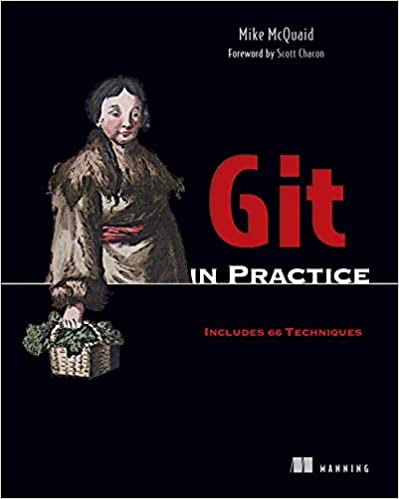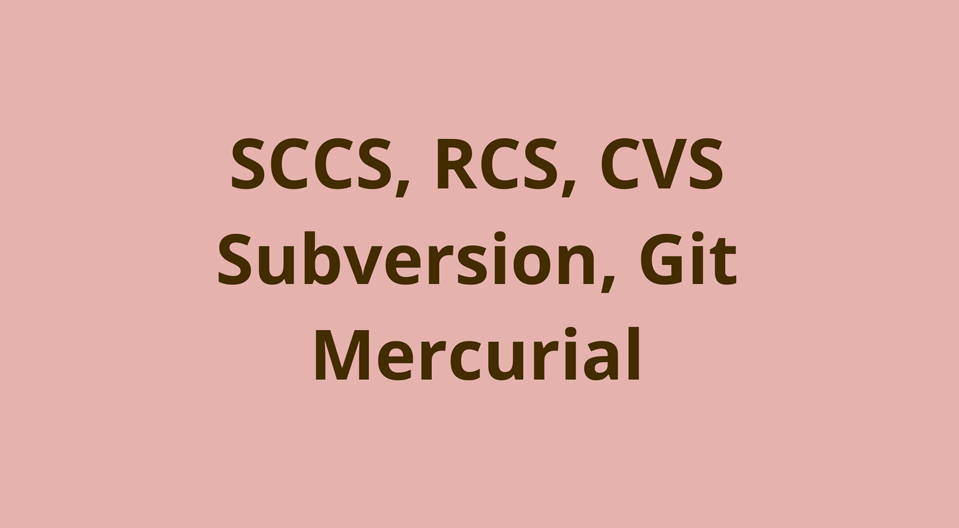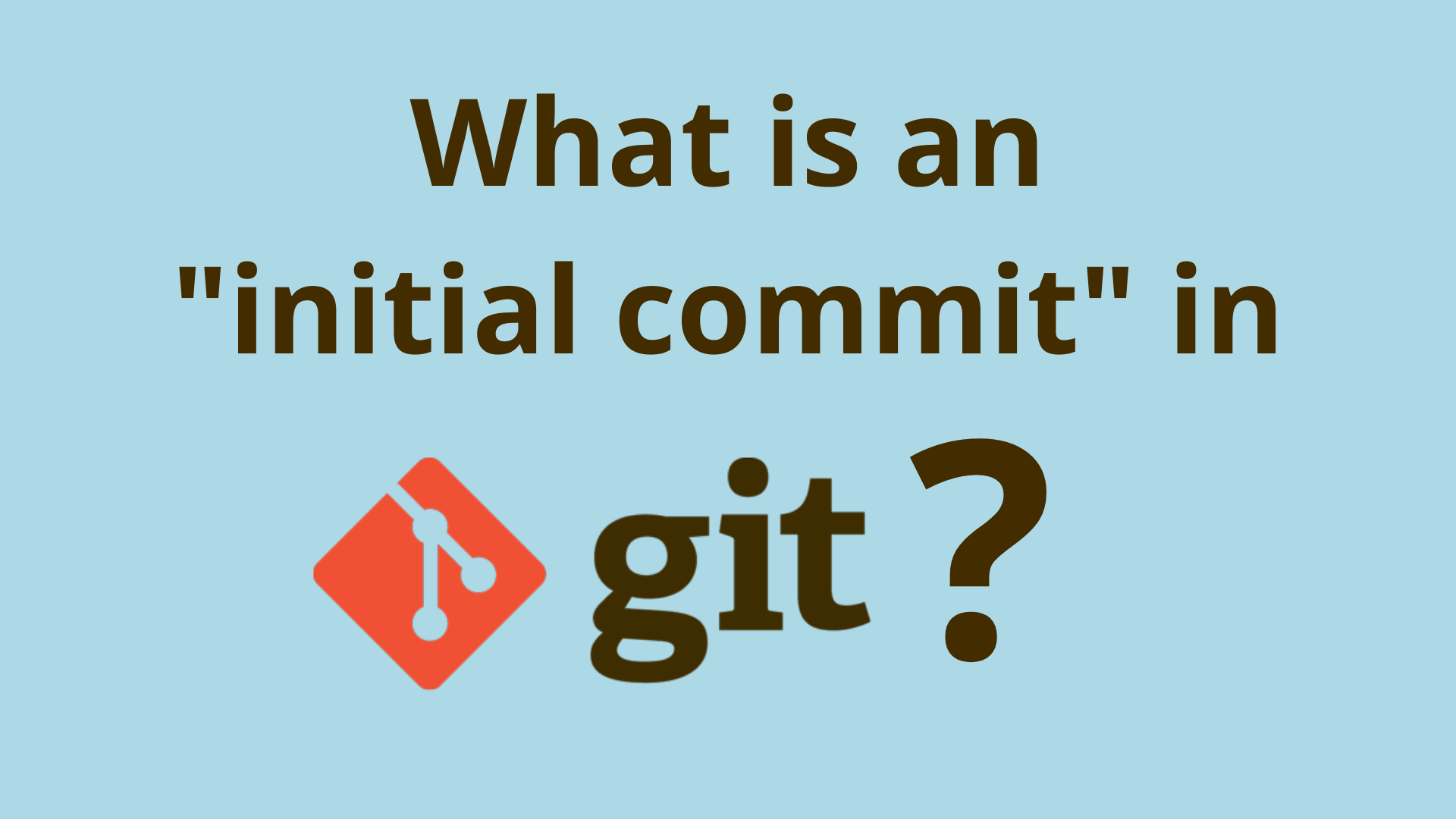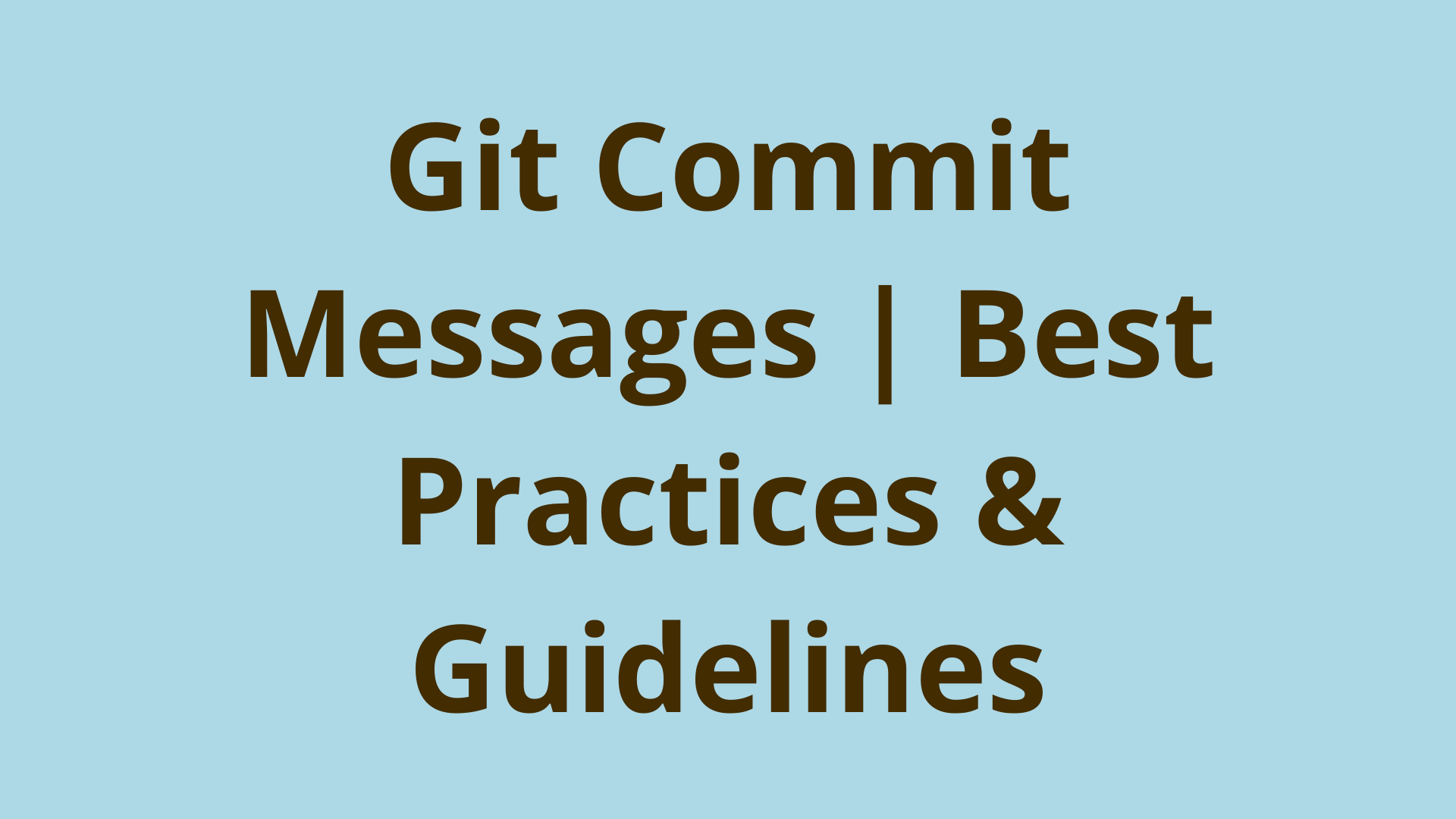16 Best Git Books of 2022 | How to Learn Git

ADVERTISEMENT
Table of Contents
- What is Git? Why are version control systems (VCS) important?
- Git Distributed Version Control
- What is the Best Way to Learn Git?
- Best Beginner Git Books
- 2. Git Essentials: Create, Merge, and Distribute Code with Git
- 5. Git Essentials: Developer's Guide to Git
- Best Advanced Git Books
- 2. Pro Git 2nd ed. Edition
- 5. Git for Programmers: Master Git for effective implementation of version control for your programming projects
- Best Budget Git Books
- 2. Git Pocket Guide: A Working Introduction
- Best Git Books for Learning Workflows, Automation, and Teams
- Git At Your Fingertips – Learn Version Control System with these Top Books
- Next Steps
What is Git? Why are version control systems (VCS) important?
Git is the leading version control software and is both free and open-source. Git was created in 2005 by the incredible software engineer Linus Torvalds, who also create the Linux kernel. Thousands of companies rely on Git for version control, including major names like Shopify and Netflix. In fact, 85% of Fortune 100 companies use Git.
Version control provides a way to track changes to the source code. Version control is especially important because it helps:
- Allow multiple collaborators to work on a project at the same time
- Improve visibility, ensuring all team members can see modifications and have the most up-to-date version
- Incorporate DevOps and accelerate product delivery timelines
Git Distributed Version Control
Git was revolutionary because it introduced the world to the first powerful distributed version control system. "Distributed" means that Git doesn't recognize any specific repository as special or different than any other. Teams of developers can exchange work directly with each other if desired instead of relying on designated centralized repositories.
Git also encourages local development and commits, whereas previous version control systems like CVS and SVN required an internet connection to commit changes to the repo.
What is the Best Way to Learn Git?
The best way to learn Git is through a combination of conceptual knowledge, step-by-step tutorials, real examples, and practice. There are multiple avenues available for learning Git depending on your preference and learning style.
We recommend starting with a good book on Git basics and how to use Git. This will build up the background information that will be essential when you start practicing Git on the command-line. If you already know the basic concepts, you might be interested in a more advanced book to learn how Git works the under hood.
In this article, we'll discuss the best Git books of 2022 with categories including, "Best Beginner Git Books", "Best Budget Git Books", "Best Advanced Git Books", and "Best Git Books for Learning Workflows, Automation, and Teams".
Best Beginner Git Books
1. Learn Version Control with Git: A step-by-step course for the complete beginner
Learn Version Control with Git is an excellent choice for any aspiring developer to learn version control. The author, Tobias Günther, explains the importance of version control systems, specifically Git. You will learn key Git features and workflows. Your understanding will be enhanced with high-quality charts and graphics.
Publisher: Independently published (March 9, 2017)
Author: Tobias Günther is co-founder of Tower, a Git desktop client in use by over 100,000 developers and designers. Tower enhances Git’s functionality and increases developer productivity.
Best Sellers Rank: #1,733,568 in Books Ranked #521 in Software Design Tools Ranked #3,388 in Software Development (Books)
Customer Reviews: 4.3 out of 5 stars 29 ratings
2. Git Essentials: Create, Merge, and Distribute Code with Git
Git Essentials: Create, Merge, and Distribute Code with Git is an excellent primer for any Git beginner. Learn about topics like branching, merging, fork and pull requests, and creating GitHub repositories.
Includes thorough installation guide to get you started. Git Essentials: Create, Merge, and Distribute Code with Git is centered around providing practical examples, with minimal time spent delving into theory. Easily follow along to learn Git commands and incorporate what you learn in your daily workflow.
Table of Contents
- Getting Started with Git
- Git Fundamentals - Working Locally
- Git Fundamentals - Working Remotely
- Git Fundamentals - Niche Concepts, Configurations, and Commands
- Obtaining the Most - Good Commits and Workflows
- Migrating to Git
- Git Resources
Author: Ferdinado Satacroce is a developer whose primary work areas are with the .NET platform, Java, Javascript, and COBOL applications. Fedinando loves to learn and share his knowledge of web and programming technologies.
Publisher: Packt Publishing; 2nd Revised edition (November 8, 2017)
Best Sellers Rank: #2,518,371 in Books Ranked #680 in Software Design Tools Ranked 2,110 in Software Design & Engineering Ranked #4,732 in Software Development (Books)
Customer Reviews: 3.9 out of 5 stars 8 ratings
3. Beginning Git and GitHub: A Comprehensive Guide to Version Control, Project Management, and Teamwork for the New Developer
Beginning Git and GitHub: A Comprehensive Guide to Version Control, Project Management, and Teamwork for the New Developer is broken into three main sections. This book strikes a great balance, providing enough detail without going too deep into the highly advanced topics.
Author, Mariot Tsitoara, provides a very thorough introduction to version control. Find Git commands confusing? He dispels this confusion by using clear examples. Learn best practices and tactics to prevent common version control issues.
Author: Mariot Tsitoara is a developer of JavaScript and Python applications. He often gives talks on online privacy and Open Source technologies.
Publisher: Apress; 1st ed. edition (December 1, 2019)
Best Sellers Rank: #371,696 in Books Ranked #908 in Web Development & Design Programming Ranked #3,562 in Computer Science (Books)
Customer Reviews: 4.3 out of 5 stars 45 ratings
Note: written by a non-native English speaker and some readers have found grammatical errors/incorrect English.
4. GIT: The Ultimate Guide for Beginners: Learn Git Version Control
GIT: The Ultimate Guide for Beginners is a great option for learning the basics to Git. Author Jameson Garner removed extraneous theory details and focuses instead workflow and core concepts. You can start using Git within an hour!
Author: Jameson Garner
Publisher: Independently published (August 7, 2020)
Best Sellers Rank: #1,274,935 in Books Ranked #91 in Compiler Design Ranked #250 in Software Programming Compilers #265 in Client-Server Networking Systems
Customer Reviews: 3.7 out of 5 stars 28 ratings
5. Git Essentials: Developer's Guide to Git
Author Francois Dupire challenges developers, of all levels, to learn the ins-and-outs of Git. Help your team succeed by understanding the correct command for each situation, without needing to consult Google. This book starts with the most fundamental basics and assumes the reader has no experience with Git or other version control systems.
Table of Contents
- Contents
- Introduction
- Prerequisites
- Source Code Management
- Getting Started
- The Basics of Git
- Branching
- Remote
- Branching Models
- Advanced Operations
- Good/Bad Practices
- Conclusion
Author: Françoise Dupire
Publication date: January 19, 2021
Best Sellers Rank: #640,852 in Kindle Store Ranked #212 in Software Engineering Ranked #289 in Software Design Tools Ranked #599 in Software Development (Kindle Store)
Customer Reviews: 4.3 out of 5 stars 5 ratings
Best Advanced Git Books
1. Baby Git: Guidebook for Developers
Baby Git: Guidebook for Developers provides a wonderful learning experience for any developers, wanting to understand what goes on behind the scenes with Git's code. The best way to study and delve into Git’s codebase, is with Baby Git. Baby Git’s codebase consists of about 1000 lines of code and 7 commands.
According to author Jacob Stopak, ‘Baby-Git could be thought of as a first rudimentary version of Git. Although much less sophisticated and convenient than its grown-up version, Baby-Git nevertheless encapsulates the core ideas behind modern-day Git.’
Baby Git can be purchased on Initial Commit or Amazon.
Table of Contents
- Introduction to Git’s Code
- An Overview of Baby Git
- Installing Baby Git
- Baby Git Tutorial
- The C Header File cache.h
- Read the Index with read-cache.c
- Initialize Git with init-db.c
- Stage Files with update-cache.c
- Create Trees with write-tree.c
- Commit Changes with commit-tree.c
- Read from the Repo with read-tree.c
- View File Contents with cat-file.c
- Calculate Diffs with show-diff.c
- Conclusion
Author: Jacob Stopak is a software developer and creator of IntialCommit.io. Stopak seeks to teach others about Git, down to the codebase level. He is also a contributor to freeCodeCamp.
Publication date: December 24, 2018
Best Sellers Rank: #1,635,768 in Kindle Store Ranked #548 in Open Source Programming Ranked #596 in Software Engineering Ranked #698 in Software Design Tools
Customer Reviews: 4.6 out of 5 stars 4 ratings
2. Pro Git 2nd ed. Edition
Pro Git is a book covering version control basics, Git basics, branching, and many more topics not covered in other titles. Pro Git provides a thorough understanding of all the important aspects of Git, even for advanced readers.
Pro Git has been recently updated. Author Scott Chacon notes ‘Git has made incredible progress on Windows, in the explosion of graphical user interfaces to it for all platforms, in IDE support and in business use. The Pro Git of four years ago knows about none of that. One of the main aims of this new edition is to touch on all of those new frontiers in the Git community.’
This book is a favorite among developers with over 1500 reviews on Amazon. Pro Git can be purchased in print form on Amazon.
Table of Contents
- Getting Started
- Git Basics
- Git Branching
- Git on the Server
- Distributed Git
- GitHub
- Git Tools
- Customizing Git
- Git and Other Systems
- Git Internals
Author: Scott Chacon and Ben Straub
Publisher: Apress; 2nd ed. edition (November 9, 2014)
Best Sellers Rank: #168,656 in Books Rank #50 in Linux & UNIX Administration (Books) Rank #53 in Unix Operating System Rank #71 in Linux Networking & System Administration
Customer Reviews: 4.5 out of 5 stars 1,545 ratings
3. Professional Git
Professional Git delivers a comprehensive guide with a professional approach to Git. Learn the best Git workflows, source management concepts, and how to work with branches. Professional Git can help newer users prevent mistakes, while providing valuable information for advanced developers.
Author: Brent Laster is a presenter and author, when he’s nor working as a DevOps Director in SAS’s Research and Development division. Learn more about Laster and read other works at Opensource.com
Publisher: Wrox; 1st edition (December 12, 2016)
Best Sellers Rank: #392,827 in Books Ranked #130 in Software Design Tools #3,891 in Computer Science (Books)
Customer Reviews: 4.4 out of 5 stars 48 ratings
4. Git Version Control Cookbook: Leverage version control to transform your development workflow and boost productivity, 2nd Edition
Git Version Control Cookbook is designed to provide practical examples to teach advanced Git features. You’ll start with the Git data model, lean to recover from mistakes, and discover how to work offline with Git.
Table of Contents
- Navigating Git
- Configuration
- Branching, Merging, and Options
- Rebase Regularly and Interactively, and Other Use Cases
- Storing Additional Information in Your Repository
- Extracting Data from the Repository
- Enhancing Your Daily Work with Git Hooks, Aliases, and Scripts
- Recovering from Mistakes
- Repository Maintenance
- Patching and Offline Sharing
- Git Plumbing and Attributes
- Tips and Tricks
Author: Aske Olsson and Rasmus Voss
Publisher: Packt Publishing (July 25, 2014)
Best Sellers Rank: #4,11,671 in Books Ranked #3,485 in Software Design & Engineering Ranked #7,541 in Software Development (Books)
Customer Reviews: 3.6 out of 5 stars 4 ratings
5. Git for Programmers: Master Git for effective implementation of version control for your programming projects
Git for Programmers provides ‘actionable insights on advanced Git topics’ giving any developer confidence when using Git. Understand how to properly create and clone repositories, handle merge conflicts, and use the log.
Table of Contents
- Introduction
- Creating Your Repository
- Branching, Places, and GUIs
- Merging, Pull Requests, and Handling Merge Conflicts
- Rebasing, Amend, and Cherry-Picking
- Interactive Rebasing
- Workflow, Notes, and Tags
- Aliases
- Using the Log
- Important Git Commands and Metadata
- Finding a Broken Commit: Bisect and Blame
- Fixing Mistakes
- Next Steps
Author: Jesse Liberty and Jon Galloway
Publisher: Packt Publishing (June 30, 2021)
Best Sellers Rank: #758,190 in Books Ranked #244 in Software Design Tools Ranked #679 in Computer Networking (Books) Ranked #996 in Computer Networks, Protocols & APIs (Books)
Customer Reviews: 3.4 out of 5 stars 15 rating
Best Budget Git Books
1. Pro Git 2nd ed. Edition
Pro Git has already been covered, but it’s being highlighted again as a great budget option. This popular comprehensive title that is available for free download as an ebook or from Amazon for Kindle.
2. Git Pocket Guide: A Working Introduction
Git Pocket Guide: A Working Introduction is the best Git book for beginners on a budget. This compact guide provides access to the important commands and other version control functions. This book is a great option to keep on hand and nearby for reference as you navigate around a distributed version control system.
Author: Richard E. Silverman
Publisher: O'Reilly Media; 1st edition (August 13, 2013)
Best Sellers Rank: #60,032 in Books Ranked #29 in Computer Operating Systems (Books) Ranked #31 in Linux Operating System Ranked #41 in Software Design & Engineering
Customer Reviews: 4.5 out of 5 stars 201 ratings
3. Ry's Git Tutorial
Ry’s Git Tutorial provides a free crash course on Git for any beginner. Designed specifically for those new to version control systems, Ry’s Git Tutorial is very popular, with over 1,000 ratings on Amazon. Don’t be a veteran developer still mystified by Git even after years of experience.
Author Ryan Hodson breaks down the importance of the development of distributed version control systems, ‘which made it much easier to share code, merge conflicts, and experiment with new ideas.’
Author: Ryan Hodson
Publisher: RyPress (November 30, 2014)
Best Sellers Rank: #5,494 Free in Kindle Store Ranked #2 in Software Engineering Ranked #4 in Software Development (Kindle Store)
Customer Reviews: 4.6 out of 5 stars 1,046 ratings
Best Git Books for Learning Workflows, Automation, and Teams
1. Git for Teams: A User-Centered Approach to Creating Efficient Workflows in Git
Git for Teams acts as an invaluable guide to navigate team dynamics, improve team collaboration, and incorporate team building. Learn techniques for handling code reviews and the best ways to structure your workflows. Git for Teams will change your interaction with Git and repository hosting platforms like GitHub, by approaching version control in a completely different manner.
Author: Emma Jane Hogbin Westby has over 20 years of experience with web technologies and now teaches courses and workshops covering version control, change management, and virtualization among others.
Publisher: O'Reilly Media; 1st edition (September 22, 2015)
Best Sellers Rank: #1,102,673 in Books Ranked #477 in Software Testing Ranked #2,635 in Web Development & Design Programming #2,868 in Computer Programming Languages
Customer Reviews: 4.2 out of 5 stars 25 ratings
2. Automating Workflows with GitHub Actions: Automate software development workflows and seamlessly deploy your applications using GitHub Actions
Automating Workflows with GitHub Actions is a book tailored for software development professionals and will help improve your SDLC. This book will be a gold mine of information if your team wants to transition to GitHub Actions, from another CI/CD platform. Learn how to write actions for Docker and JavaScript environments and creating a self-hosted runner.
Table of Contents
- Learning the foundations for GitHub Actions
- Deep-diving into GitHub Actions
- A closer look at Workflows
- Working with Self-hosted runners
- Writing your own actions
- Marketplace: Finding Existing Actions and Publishing Your Own
- Migrations
- Contributing to the community and finding help
- The future of GitHub Actions
Author: Priscila Heller was born in Brazil and moved to the United States in 2011. She found her way into Tech, originally as an Enterpise Support Agent with GitHub. Priscila has continued to move up within GitHub and now works as the Senior Manager of Premium Support.
Publisher: Packt Publishing (November 11, 2021)
Best Sellers Rank: #178,780 in Books Ranked #62 in Software Design Tools Ranked #98 in Computer Systems Analysis & Design (Books) Ranked #160 in Enterprise Applications
Customer Reviews: 5.0 out of 5 stars 9 ratings
3. Advanced Git (Second Edition): Understanding Git Collaboration & Workflows
Advanced Git (Second Edition): Understanding Git Collaboration & Workflows is designed for any reader with a solid introductory understanding of Git, looking to move onto advanced topics. You will learn how Git works on the backend, how to handle merge conflicts, plus rebasing and squashing. Let this book demystify any of these misunderstood topics, so you tackle any tricky version control issues you encounter.
Author: This book was created by Razeware, the company behind raywenderlich. Raywenderlich is a leading source for tutorials and information to help mobile developers.
Publisher: Razeware LLC (October 12, 2021)
Best Sellers Rank: #2,200,965 in Books Ranked #11,598 in Computer Science (Books) Ranked #23,248 in Computer Programming (Books)
4. Git in Practice: Includes 66 Techniques
Git In Practice: Includes 66 Techniques quickly revisits basic Git processes, before diving into the 66 techniques that will provide excellent value to any team. Learn common problem and solutions in the areas of advanced branching and history visualization. Each topic is formatted with a Problem, Solution, and Discussion section. You’ll find best practices and strategies to approach version control with Git as a team, including disaster recovery and complex configurations.
Table of Contents
- Local Git
- Remote Git
- Filesystem interactions
- History visualization
- Advanced branching
- Rewriting history and disaster recovery
- Personalizing Git
- Vendoring dependencies as submodules
- Working with Subversion
- GitHub pull requests
- Hosting a repository
- Creating a clean history
- Merging vs. rebasing
- Recommended team workflows
Author: Git in Practice: Includes 66 Techniques was authored by GitHub software engineer Mike McQuaid. Check out his personal website to learn more about his professional interests and work at GitHub, including the Homebrew project.
Publisher: Manning; 1st edition (October 12, 2014)
Best Sellers Rank: #1,552,151 in Books Ranked #260 in Content Management Ranked #474 in Software Design Tools Ranked #645 in Software Testing
Customer Reviews: 4.1 out of 5 stars 23 ratings
Git At Your Fingertips – Learn Version Control System with these Top Books
Don’t let version control or Git intimidate or confuse you. It can be distilled down to an understandable format. By reading one or two of these 16 books, you’ll be able to better manage your codebase and collaborate with colleagues. You'll be able to monitor changes to the source code using Git, while keeping your repositories available online using GitHub.
Regardless of your skill level or previous experience, you can find a book to suit your needs. We suggested options for beginners, advanced users, those on a budget, and users looking to gain experience with workflows and team functions.
If you are a beginner, the best book for learning Git is Learn Version Control with Git. If you are an advanced Git user, check out Baby Git: Guidebook for Developers to learn Git’s from a source code level. The best budget pick is Pro Git and the best book for teams and workflows is Git for Teams.
Next Steps
If you're interested in learning more about how Git works under the hood, check out our Baby Git Guidebook for Developers, which dives into Git's code in an accessible way. We wrote it for curious developers to learn how Git works at the code level. To do this we documented the first version of Git's code and discuss it in detail.
We hope you enjoyed this post! Feel free to shoot me an email at jacob@initialcommit.io with any questions or comments.
Final Notes
Recommended product: Decoding Git Guidebook for Developers
